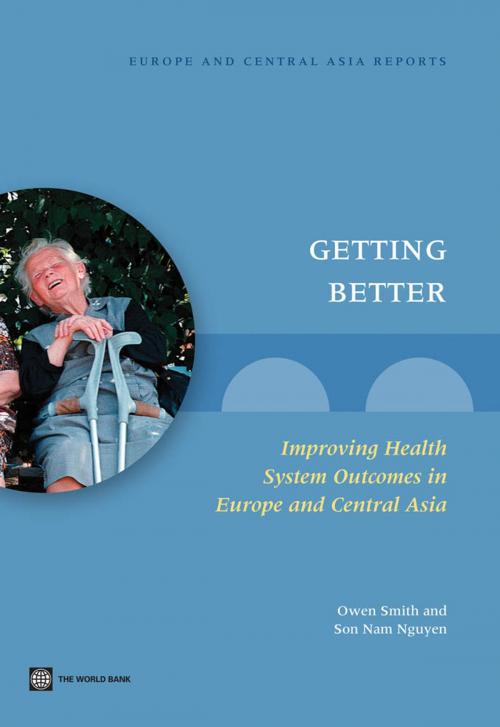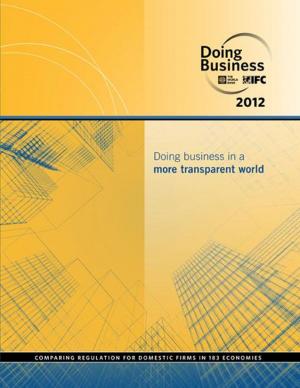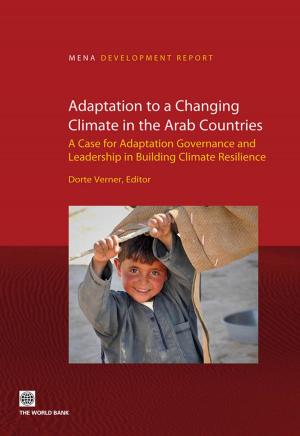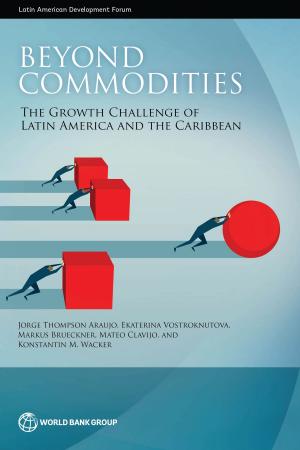Getting Better
Improving Health System Outcomes in Europe and Central Asia
Nonfiction, Health & Well Being, Medical, Reference, Health Policy, Social & Cultural Studies, Political Science, Politics, Social Services & Welfare| Author: | Owen Smith, Son Nam Nguyen | ISBN: | 9780821398845 |
| Publisher: | World Bank Publications | Publication: | June 10, 2013 |
| Imprint: | Language: | English |
| Author: | Owen Smith, Son Nam Nguyen |
| ISBN: | 9780821398845 |
| Publisher: | World Bank Publications |
| Publication: | June 10, 2013 |
| Imprint: | |
| Language: | English |
Fifty years ago, health outcomes in the countries of Eastern Europe and Central Asia were not far behind those in Western Europe and well ahead of most other regions of the world. But progress since then has been slow. While life expectancy in the ECA region today is close to the global average, the gap with its western neighbors has doubled, and other middle-income regions have all surpassed ECA. Some countries in the region are doing better, but full convergence with the world’s most advanced health systems is still a long way off. At the same time, survey evidence suggests that the health sector is the top priority for additional investment among populations across the region. The experience of high-income countries also suggests that popular demand for strong and accessible health systems will only grow over time. Yet these aspirations must be reconciled with current fiscal realities. In brief, health sector issues are a challenge here to stay for policy-makers across the ECA region. This report draws on new evidence to explore the development challenge facing health sectors in ECA, and highlights three key agendas to help policy-makers seeking to achieve more rapid convergence with the world’s best performing health systems. The first is the health agenda, where the task is to strengthen public health and primary care interventions to help launch the “cardiovascular revolution” that has taken place in the West in recent decades. The second is the financing agenda, in which growing demand for medical care must be satisfied without imposing undue burden on households or government budgets. The third agenda relates to broader institutional arrangements. Here there are some key reform ingredients common to most advanced health systems that are still missing in many ECA countries. A common theme in each of these three agendas is the emphasis on improving outcomes, or “Getting Better”.
Fifty years ago, health outcomes in the countries of Eastern Europe and Central Asia were not far behind those in Western Europe and well ahead of most other regions of the world. But progress since then has been slow. While life expectancy in the ECA region today is close to the global average, the gap with its western neighbors has doubled, and other middle-income regions have all surpassed ECA. Some countries in the region are doing better, but full convergence with the world’s most advanced health systems is still a long way off. At the same time, survey evidence suggests that the health sector is the top priority for additional investment among populations across the region. The experience of high-income countries also suggests that popular demand for strong and accessible health systems will only grow over time. Yet these aspirations must be reconciled with current fiscal realities. In brief, health sector issues are a challenge here to stay for policy-makers across the ECA region. This report draws on new evidence to explore the development challenge facing health sectors in ECA, and highlights three key agendas to help policy-makers seeking to achieve more rapid convergence with the world’s best performing health systems. The first is the health agenda, where the task is to strengthen public health and primary care interventions to help launch the “cardiovascular revolution” that has taken place in the West in recent decades. The second is the financing agenda, in which growing demand for medical care must be satisfied without imposing undue burden on households or government budgets. The third agenda relates to broader institutional arrangements. Here there are some key reform ingredients common to most advanced health systems that are still missing in many ECA countries. A common theme in each of these three agendas is the emphasis on improving outcomes, or “Getting Better”.















